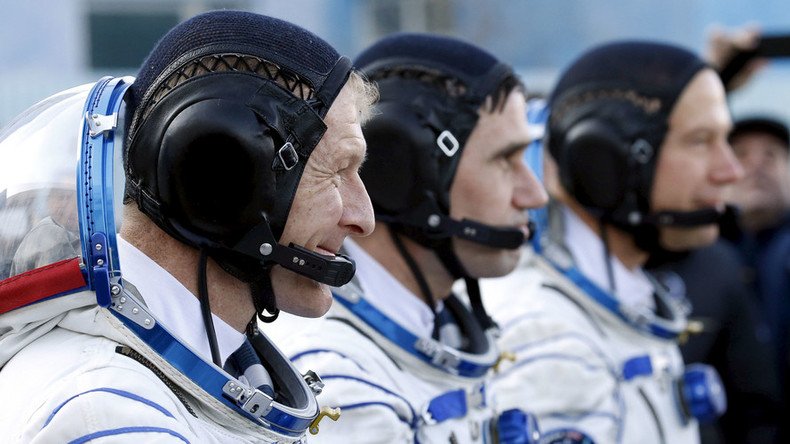Herpes in space: NASA using $80,000 in grants to study how it mutates after takeoff

NASA is engaged in a study of four types of herpesviruses to better understand how they mutate – and worsen – before, during, and after manned space missions. Funded by grants and contracts totaling $80,000, it is expected to be completed by May of 2018.
Titled “Effect of Spaceflight on Herpesvirus Genome Stability and Diversity,” the research is being conducted out of the University of Florida.
“The goal of this study will be to determine the changes in the genomic and mutational diversity that is present in the Herpesvirus virome present in astronaut saliva and urine samples collected before, during, and after space flight,” NASA said on its website.
NASA commemorate #Challenger crew in 30th anniversary of disaster [VIDEO] https://t.co/YGpV52MjY0pic.twitter.com/HsCEX139Bb
— RT America (@RT_America) January 28, 2016There is no cure for herpes and it is spreadable. The World Health Organization estimates that about two out of three people worldwide are infected. The most common type is herpes simplex virus type 1, also known as oral herpes, which is responsible for cold sores. While many people don’t even realize they carry herpes, and it may never have a major impact on their lives, that is a privilege astronauts give up once they enter space, where the effects of the virus are known to worsen.
“Ground subjects will serve as the control group providing saliva and urine samples pre-flight and post-flight during the same schedule as the astronauts,” NASA’s statement explained, adding that a “deep sequence analysis” will be conducted on all of the virus samples.
The four types of herpesviruses to be studied are herpes simplex virus, Epstein-Barr virus, also called human herpesvirus 4; varicella or chickenpox; and herpes zoster, also known as shingles.
“The fact that space flight is known to increase the frequency and duration of Herpesvirus reactivation sets up a biological environment for these reactivating and replicating viruses to mutate,” NASA said.
NASA wants public to create robotic arm for its ISS flying robot https://t.co/x3bgV7IYelpic.twitter.com/sVisQmYqnA
— RT America (@RT_America) January 20, 2016The study is ongoing and will continue until May of 2018, according to the Washington Free Beacon.
“In summary, the proposed study is a unique opportunity to examine the influence of space flight on the mutation rate and diversity of human persistent viruses and to assess the potential risk of virus mutations accumulating during long-duration missions,” NASA said.












